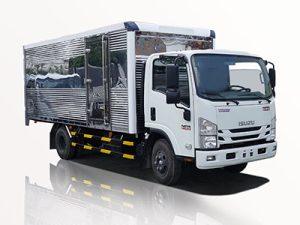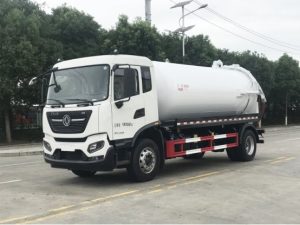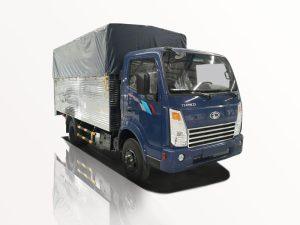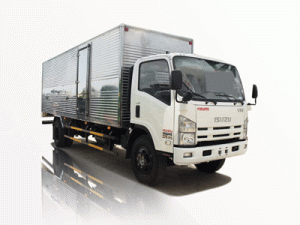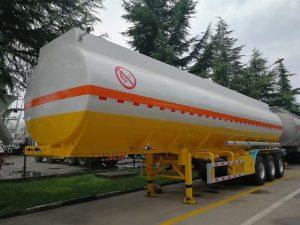Monday to Saturday - 8:00 -17:30
Who Invented Refrigerated Trucks? The History and Impact of Refrigerated Transportation
Refrigerated trucks, also known as reefer trucks, have revolutionized the transportation of perishable goods, ensuring that food and other temperature-sensitive products reach consumers safely and in optimal condition. Understanding the invention of refrigerated trucks requires delving into the history of refrigeration technology as a whole. This article explores the key developments, inventors, and the evolution of refrigerated transport.
The Need for Refrigerated Transportation
Before the invention of refrigerated trucks, transporting perishable goods was a significant challenge. Fresh food items like meat, dairy, and vegetables could spoil quickly, leading to considerable waste. The demand for reliable methods of transporting these goods arose significantly during the early 20th century due to urbanization and changing consumer habits.
Early Preservation Methods
Before the advent of refrigerated trucks, various methods were employed for food preservation. These included:
- Salting: Commonly used for meats to reduce moisture content.
- Smoking: Another preservation method to extend meat shelf-life.
- Icing: Transporting products on ice was a common but inefficient practice.
The limitations of these methods highlighted the need for a more effective solution, paving the way for refrigerated transport.
The Birth of Refrigerated Trucks
Who Invented Refrigerated Trucks?
The first refrigerated truck is credited to Gottfried Krueger, an American brewer, who used a vehicle with a refrigerator installed in it in the late 1800s. His goal was to transport beer at controlled temperatures. This innovative idea set the stage for modern refrigerated transportation.
Milestones in Refrigeration Technology
Key milestones in the development of refrigerated trucks include:
- 1834: Jacob Perkins invented the first mechanical refrigeration system, using ether in a closed cycle.
- 1861: John Gorrie, an American physician, created an ice machine to cool air for patients, contributing to refrigeration advancements.
- 1911: The first patent for a refrigerated truck was issued to a company called Carrier Engineering Corporation, which made significant strides in commercial refrigeration.
Evolution of Refrigerated Truck Technology
Early Innovations
The initial models of refrigerated trucks were based on the use of ice and mechanical refrigeration systems that would chill the air inside the cargo area. However, these systems had limitations like temperature control, space, and efficiency.
Technological Advancements
With advancements in technology, refrigerated trucks evolved significantly. Some notable improvements include:
- Thermal Insulation: Enhanced insulation materials helped retain cooler temperatures effectively.
- Direct Expansion Systems: Allowed for faster and more efficient cooling and temperature maintenance.
- Multi-Temperature Zones: Enabled transport of different products at various temperatures.
Impact of Refrigerated Trucks on Various Industries
Refrigerated trucks have made significant contributions to various industries, including:
Food Industry
Refrigerated trucks allow for the long-distance transport of perishable goods, leading to:
- Extended shelf life for fruits, vegetables, dairy, and meats.
- Access to fresh food in regions far from production areas.
Pharmaceutical Industry
The pharmaceutical sector benefits greatly from refrigerated trucks to maintain the integrity of temperature-sensitive medications and vaccines.
How Refrigerated Trucks Operate
Refrigeration Units
Refrigerated trucks typically incorporate a refrigeration unit that utilizes various mechanisms to maintain low temperatures. Common systems include:
- Vapor-compression Refrigeration: Most widely used, employing a refrigerant that cycles to absorb and expel heat.
- Absorption Refrigeration: Uses heat sources to drive the refrigeration cycle, often found in larger, industrial units.
Temperature Control
Temperature monitoring systems are vital for ensuring that goods are transported at the correct temperature. Many modern refrigerated trucks come equipped with:
- Digital temperature displays for real-time monitoring.
- Alarms that signal deviations from set temperatures.
| Type of Refrigeration System | Usage | Advantages |
|---|---|---|
| Vapor-compression | Most refrigerated trucks | Highly efficient, versatile |
| Absorption | Large commercial settings | Can utilize waste heat, quieter operation |
Practical Tips for Using Refrigerated Trucks
Loading and Unloading
To maximize efficiency and reduce spoilage when using refrigerated trucks, consider these tips:
- Pre-cool the truck before loading to ensure all goods are placed in a cold environment.
- Place the most temperature-sensitive products closest to the refrigeration unit.
- Avoid overloading the truck, as it can obstruct airflow.
Maintenance of Refrigerated Trucks
Regular maintenance is crucial to ensure reliable operation:
- Check refrigeration units frequently to ensure they are functioning correctly.
- Inspect insulation for wear and tear, which can lead to temperature loss.
- Confirm that temperature monitoring systems are calibrated and operational.
Future Innovations in Refrigerated Transport
As technology progresses, the future of refrigerated trucks looks promising with advancements such as:
- Electric Refrigerated Trucks: With growing environmental concerns, electric trucks are making their entrance into the market.
- IoT Integration: Internet of Things (IoT) technology allows for real-time monitoring of cargo conditions, enhancing efficiency and safety.
Sustainability Initiatives
Efforts to make refrigerated trucking more sustainable include the use of alternative fuels and eco-friendly refrigerants that have a lower environmental impact.
FAQs about Refrigerated Trucks
1. Who invented the first refrigerated truck?
The first refrigerated truck is credited to Gottfried Krueger, who sought to transport beer with refrigeration technology in the late 1800s.
2. What types of goods can be transported in refrigerated trucks?
Refrigerated trucks are primarily used for transporting perishable items, including food (meat, dairy, fruits, and vegetables) and temperature-sensitive pharmaceuticals.
3. How do refrigerated trucks maintain temperature during transport?
Refrigerated trucks utilize refrigeration units that can be based on either vapor-compression or absorption technology to maintain a specific temperature throughout the journey.
4. Are all refrigerated trucks the same in terms of temperature control?
No, there are different types of refrigerated trucks designed for various temperature ranges, including multi-temperature zones for transporting multiple products at once.
5. What are the benefits of using refrigerated trucks for food transportation?
Benefits include extended shelf life of goods, reduced spoilage and waste, and the ability to transport fresh food over long distances.
6. How can I ensure the effectiveness of refrigerated transportation?
Ensure pre-cooling of the truck, use proper loading techniques, conduct regular maintenance, and ensure the temperature monitoring systems are in place and functioning correctly.




